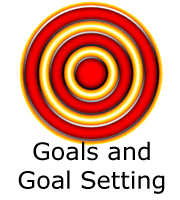If you’ve worked on the planning and preparation, you’ll have set yourself some timelines of when you want your goal (including the smaller goals) to be completed.
Obviously, you may never think you have to review, especially if you can see and feel your goals working.
But what if you don’t? And what if the deadline comes and goes, and the goal is not achieved?
I would like to suggest to you that you evaluate and review your goals on a regular basis, at least once a week.
Not Seeing the Results?
This can be demotivating or the point where some say ‘what’s the use, nothing is happening‘.
Assuming that you are taking action, 100% committed and have not ‘sold up’, this would be a great time for a review.
Also, you may not see the results right away.
There is a great book title called ‘You’ll See It When You Believe It, Or You’ll Believe It When You See It’. We can get hung up on the not seeing, I know many of us want concrete evidence that all the action we are taking is worth it, but life isn’t like that.
Why Review and Evalute?
Sometimes you’ll notice small results, but not as much as you’d like so you need to tweak your plans slightly to adjust the outcome. Or you’ll figure out that changing your approach on one simple thing will explode your results like crazy!
Evaluation is a worthwhile activity because it can help keep you honest about your efforts, it can reveal holes in your plans and it can inspire you to keep going when you notice even moderate results happening.
There are two types of evaluation you should do periodically. The first involves frequent evaluation of your daily actions.
Try Not to Leave Them Hanging
Commitment at the time when you aren’t seeing results is crucial. Where it may seem easier to ‘put them aside and forget’, this is time when you need to have that accountability ‘chat’ with yourself. Or find someone who you can talk to. Someone who is rooting for you, they may be able to offer another perspective, or help you with ideas.
Leaving them hanging because it’s getting ‘tuff, is such a waste (in my opinion). You could be one action away from a breakthrough.
Every one to two weeks, take a few moments to answer these questions with honesty:
- Are you sticking to the plan?
- How can your plan be improved?
- Have you needed to use Plan B?
- If so, how did that work out for you?
- Where can you improve on your orginal plan?
- Do you need to modify anywhere?
- If so, are they working better for you?
- Have your results met your expectations so far?
- If not, why not?
- What can you do to improve your results (go back to the orginal who, why, where, when, how, can you add to it?)
The other type of evaluation can be done monthly or even quarterly; and it should focus more on your long-term progress rather than your daily actions.
Answer these questions:
- Are your plans moving you in the right direction?
- Is your ultimate goal still the same, or are you considering a change in direction?
- Can you think of any ways to improve upon your original plans?
- What are you learning about yourself through this process?
- Have you developed a stronger appreciation of any aspect of yourself?
- Which of your qualities and habits still need improvement?
- How can you begin to expand your potential and stretch your limits?
- Are you beginning to think of even larger goals you can achieve now?
 Goal, Plan, Action
Goal, Plan, Action